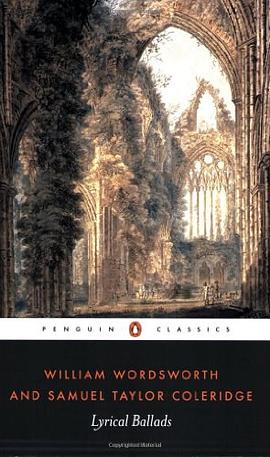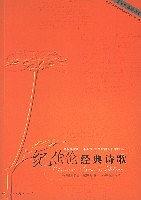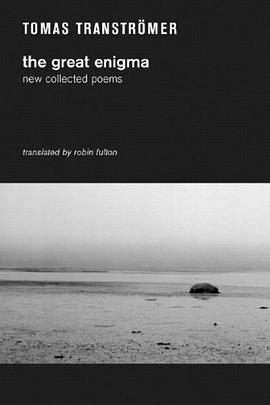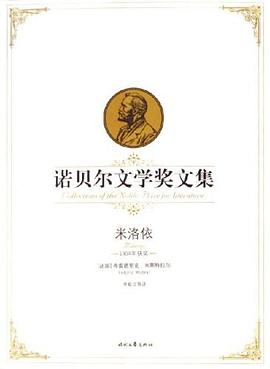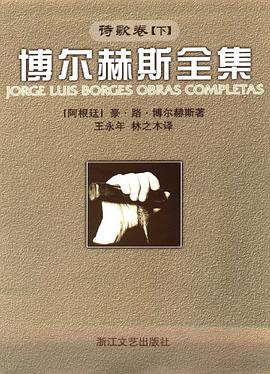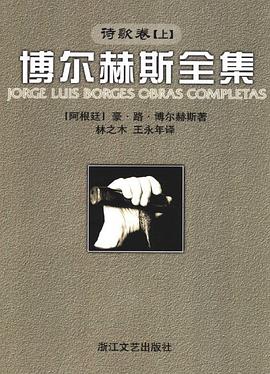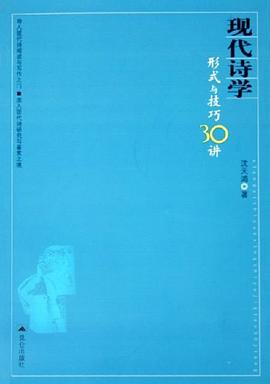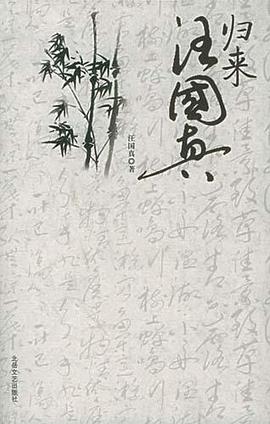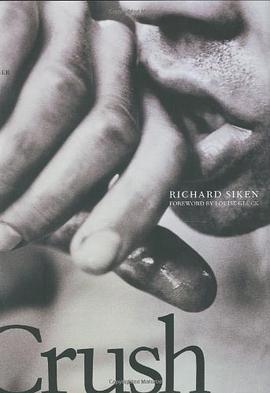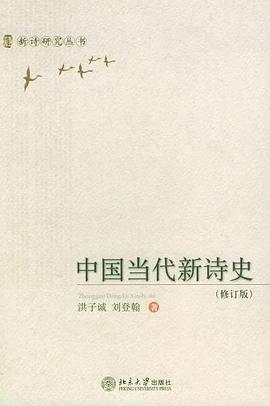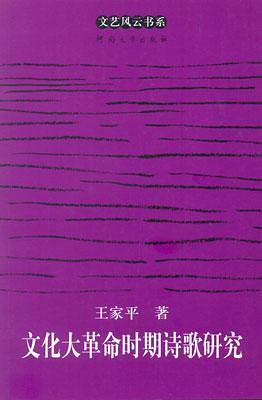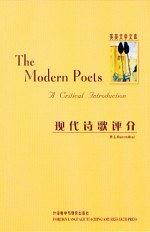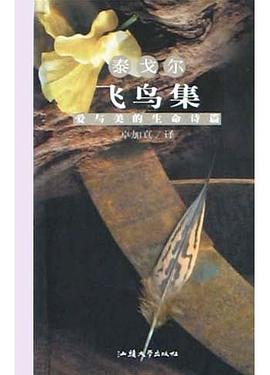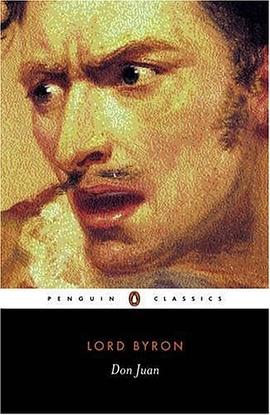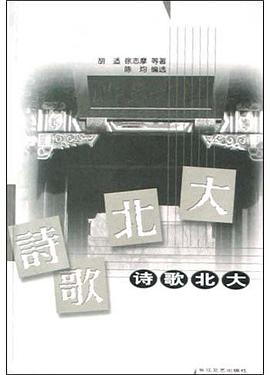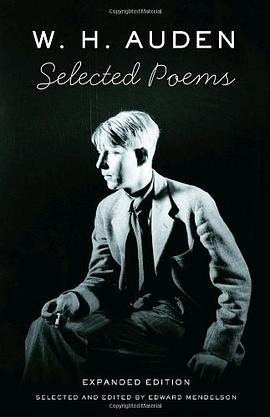

具体描述
This significantly expanded edition of W. H. Auden’s Selected Poems adds twenty poems to the hundred in the original edition, broadening its focus to better reflect the enormous wealth of form, rhetoric, tone, and content in Auden’s work. Newly included are such favorites as “Funeral Blues” and other works that represent Auden’s lighter, comic side, giving a fuller picture of the range of his genius. Also new are brief notes explaining references that may have become obscure to younger generations of readers and a revised introduction that draws on recent additions to knowledge about Auden.
As in the original edition, the new Selected Poems makes available the preferred original versions of some thirty poems that Auden revised later in life, making it the best source for enjoying the many facets of Auden’s art in one volume.
作者简介
Wystan Hugh Auden was born in York, England, on February 21, 1907. He moved to Birmingham during childhood and was educated at Christ Church, Oxford. As a young man he was influenced by the poetry of Thomas Hardy and Robert Frost, as well as William Blake, Emily Dickinson, Gerard Manley Hopkins, and Old English verse. At Oxford his precocity as a poet was immediately apparent, and he formed lifelong friendships with two fellow writers, Stephen Spender and Christopher Isherwood.
In 1928, his collection Poems was privately printed, but it wasn’t until 1930, when another collection titled Poems (though its contents were different) was published, that Auden was established as the leading voice of a new generation.
Ever since, he has been admired for his unsurpassed technical virtuosity and an ability to write poems in nearly every imaginable verse form; the incorporation in his work of popular culture, current events, and vernacular speech; and also for the vast range of his intellect, which drew easily from an extraordinary variety of literatures, art forms, social and political theories, and scientific and technical information. He had a remarkable wit, and often mimicked the writing styles of other poets such as Dickinson, W. B. Yeats, and Henry James. His poetry frequently recounts, literally or metaphorically, a journey or quest, and his travels provided rich material for his verse.
He visited Germany, Iceland, and China, served in the Spanish Civil war, and in 1939 moved to the United States, where he met his lover, Chester Kallman, and became an American citizen. His own beliefs changed radically between his youthful career in England, when he was an ardent advocate of socialism and Freudian psychoanalysis, and his later phase in America, when his central preoccupation became Christianity and the theology of modern Protestant theologians. A prolific writer, Auden was also a noted playwright, librettist, editor, and essayist. Generally considered the greatest English poet of the twentieth century, his work has exerted a major influence on succeeding generations of poets on both sides of the Atlantic.
W. H. Auden served as a chancellor of the Academy of American Poets from 1954 to 1973, and divided most of the second half of his life between residences in New York City and Austria. He died in Vienna on September 29, 1973.
目录信息
读后感
评分
评分
评分
评分
用户评价
我一直对那些能够触及灵魂深处的文字充满渴望,而W. H. Auden,正是这样一位用文字构建起独特精神世界的诗人。这本书,如同一本邀请函,邀请我去探索奥登那广阔而深邃的内心世界。我知道,他的诗歌,不仅仅是语言的艺术,更是思想的表达,是对人类情感和生存状态的深刻洞察。我期待,能够在这本书中找到那些能够触动我心弦的诗句,那些能够让我对生活产生新的理解和体悟的文字。奥登的诗歌,常常在看似平淡的叙述中,蕴含着对生命本质的追问,以及对个体在社会中所扮演角色的反思。我希望,通过阅读这本书,能够更清晰地看到奥登是如何以他独特的视角,观察和记录那个时代的变迁,以及人类在其中所经历的喜怒哀乐。这本书,对我而言,是一次与一位伟大诗人的心灵交流,一次对人生意义的深度探索,我期待着它能够带给我更多的智慧和启迪。
评分我一直对那些能够用文字描绘出时代变迁和人类情感的诗人充满敬意,而W. H. Auden无疑是其中的佼佼者。这本书,就像一个宝藏,等待我去发掘其中蕴含的智慧和情感。我知道,奥登的诗歌风格独特,既有古典的韵律,又有现代的思考,常常在看似简单的文字中,蕴含着深刻的人生哲理。我期待,能够在这本书中找到那些能够触动我心灵的诗句,那些能够让我对生活有更深刻体悟的文字。奥登的诗歌,常常是对现代社会生活和人类精神状态的深刻反思,他能够以一种冷静而又充满人文关怀的笔触,描绘出那个时代的精神面貌。我希望,通过阅读这本书,能够更深入地理解奥登是如何在诗歌中表达他对爱、对自由、对人类命运的追求。这本书,对我而言,是一次与一位伟大诗人的心灵对话,一次对人生和艺术的深度探索,我期待着它能够带给我更多的启迪和思考。
评分在我看来,一本真正优秀的图书,不仅仅是信息的传递,更是思想的交流和情感的共鸣。W. H. Auden,这个名字本身就带着一种特殊的魔力,它预示着一场关于诗歌、关于人生、关于时代的深度对话。这本书,对我而言,就是这样一次难得的机缘。我渴望在这本书中找到那些能够让我沉醉的诗句,那些能够引发我灵魂深处共鸣的文字。我知道,奥登的诗歌,常常在看似简洁的语言中,蕴含着对人类情感和生存困境的深刻洞察。他能够以一种独特的视角,审视现代社会的种种现象,并且在其中寻找生命的意义和价值。我希望,通过阅读这本书,能够更深入地理解奥登的创作理念,以及他是如何在诗歌中表达他对世界和人生的看法。这本书,对我而言,是一次精神的探索之旅,一次与一位伟大诗人的灵魂相遇,我期待着它能够带给我更多的启发和感悟。
评分拿到这本书,我脑海中立刻浮现出奥登的形象,那个在20世纪诗坛上熠熠生辉的名字。我知道,他的诗歌风格多样,情感丰富,对人生有着深刻的见解。这本书,对我而言,不仅是一次对奥登诗歌的欣赏,更是一次对他人生哲学的探索。我渴望在这本书中找到那些能够引发我共鸣的句子,那些能够让我对生活有更深刻体会的文字。奥登的诗歌,常常将个人的情感与时代的变迁巧妙地融合在一起,他能够以一种冷静而又充满力量的笔触,描绘出那个时代的风貌,以及人类在历史洪流中的挣扎与追求。我希望,通过阅读这本书,能够更深入地理解奥登是如何处理艺术与生活,情感与理智之间的关系,以及他是如何在诗歌中表达他对社会和人性的关怀。这本书,对我而言,是一次精神的洗礼,一次与伟大灵魂的对话,我期待着它能够带给我更多的启迪和思考。
评分当这本书出现在我的手中,我感受到的是一种历史的沉淀和艺术的力量。W. H. Auden,这个名字本身就代表着一个时代的诗歌高峰。我知道,他的作品影响了无数后来的诗人,也为我们理解20世纪的历史和社会思潮提供了重要的视角。这本书,对我来说,不仅仅是阅读他的诗歌,更是一次深入了解他思想世界的契机。我渴望在这本书中找到那些能够让我惊叹的诗句,那些能够引发我深刻思考的段落。奥登的诗歌,常常以一种智性的幽默和深刻的洞察力,剖析人性的复杂和社会的现实。他能够将宏大的历史叙事与个人的细腻情感巧妙地结合,从而创造出具有独特魅力的艺术作品。我希望,通过阅读这本书,能够更全面地理解奥登在诗歌创作上的成就,以及他对文学和人类思想的贡献。这本书,对我而言,是一次与伟大灵魂的对话,一次对人生和艺术的深度探索,我期待着它能够带给我前所未有的阅读体验。
评分我一直对那些能够超越时代的思想家和艺术家感到由衷的钦佩,而W. H. Auden无疑是其中的一位。他的名字本身就带有某种魔力,预示着一场关于智慧与情感的盛宴。这本书,对我来说,不仅仅是收集了奥登的诗作,更是一次深入探索他内心世界的旅程。我猜想,在这本书的字里行间,隐藏着奥登对爱、对死亡、对社会、对信仰的种种思考。他的诗歌,不像有些诗人那样晦涩难懂,却也并非浅显易懂。它需要读者用心去体会,用脑去解读,用情感去共鸣。我期待着,能够在这本书中找到那些能够引发我深思的段落,那些能够让我重新审视自己过去经历的句子。奥登的诗歌,常常蕴含着一种冷静的观察和深刻的洞察,他能够以一种超然的姿态,审视人性的复杂与脆弱,同时又怀揣着对美好事物的无限热爱。我希望,通过阅读这本书,能够学习到他那种独特的视角,能够从他那里汲取面对生活困境的力量,能够让自己的精神世界更加丰富和辽阔。这本书,对我而言,不仅仅是一本书,更是一次与一位伟大灵魂的对话,一次关于人生意义的探索。
评分当我把这本书带回家,我并没有立刻翻开它。我喜欢先静静地欣赏一下它的外观,想象一下里面蕴含的无限可能。W. H. Auden,这个名字本身就带着一种历史的厚重感和艺术的光辉。我知道,他的诗歌不仅是文字的排列,更是时代的记录,是人性的写照。这本书,对我来说,更像是一扇通往奥登内心世界的窗口,我渴望透过这扇窗,去了解他的人生经历,他的思想轨迹,以及他对世界的独特看法。我希望,这本书能够让我更清晰地看到奥登是如何在复杂的社会环境中,保持自己独立的思考和独特的艺术追求。他的诗歌,常常在看似平静的文字中,蕴含着对人类命运的深切关怀,以及对个体存在意义的不断追问。我期待,在这本书中,能够找到那些能够打动我,能够启发我,能够让我对生活有更深刻理解的诗句。这本书,对我而言,是一次与伟人的对话,一次对精神世界的探索,我迫不及待地想要开始这段旅程。
评分怀揣着对文学巨匠奥登的敬意,我翻开了这本书。我知道,奥登的诗歌世界是丰富多彩的,它融合了古典的韵律与现代的节奏,既有对个人情感的细腻描绘,也有对社会现实的深刻批判。我尤其好奇,他在不同的创作时期,思想和情感上会有怎样的变化和发展。这本书,或许能够为我揭示奥登诗歌创作的脉络,让我看到他如何随着时代的变迁而不断成长和蜕变。我期待,能够在这本书中找到那些令人耳目一新的意象,那些能够启发我思考人生哲理的语句。奥登的诗歌,常常有一种独特的魅力,它能够将平凡的生活场景描绘得充满诗意,能够将复杂的抽象概念转化为生动具体的意象。我希望,通过阅读这本书,能够更深入地理解他的创作技巧,能够学习到他如何运用语言来表达情感,如何用文字来构建一个完整的世界。这本书,对我而言,是一次精神的旅行,一次与一位伟大诗人的心灵相遇,我期待着它能够带给我更多的惊喜和感悟。
评分在书架的角落里,一本崭新的《W. H. Auden》静静地躺着,我毫不犹豫地将它收入囊中,内心充满了期待。作为一名对现代诗歌有着浓厚兴趣的读者,奥登的名字早已如雷贯耳,他的诗歌如同夜空中璀璨的星辰,虽然不曾亲眼目睹,却早已被其独特的光芒所吸引。这本书,或许是探索这位伟大诗人灵魂深处的一次契机,一次与他思想进行深层对话的邀请。我试图想象,翻开书页的瞬间,是否就能穿越时空的壁垒,与那个时代的奥登面对面,感受他文字中蕴含的智慧、激情与忧伤。这本书的封面设计简洁而富有力量,黑白相间的色调,配以优雅的字体,仿佛在无声地诉说着诗人的内心世界——既有对生活的热爱,也深藏着对时代变迁的深刻反思。我迫不及待地想要沉浸其中,去领略奥登那独树一帜的诗歌风格,去品味他那些看似简单却饱含哲理的句子,去理解他如何在诗歌的世界里构建起属于自己的独特宇宙。这本书不仅仅是一本诗集,它更像是一扇窗,透过它,我希望能看到奥登笔下的世界,看到他如何用文字描绘人生的喜怒哀乐,如何捕捉时代的脉搏,如何思考人类存在的意义。我对这本书充满了好奇,也充满了敬畏,它将带领我踏上一段未知的文学旅程,而我,已经准备好,去迎接沿途所有的惊喜与启迪。
评分拿起这本书,我感受到的是一种沉甸甸的质感,这不仅仅是纸张的重量,更是文字所承载的历史与思想的重量。奥登,这位在二十世纪诗坛占据举足轻重地位的诗人,他的作品早已超越了国界和时代,成为人类共同的精神财富。我一直认为,优秀的诗歌不仅仅是文字的组合,更是情感的抒发,思想的载体,以及对世界敏锐洞察的体现。而奥登,无疑是这其中的佼佼者。他的诗歌,时而如清泉般流淌,细腻而温柔,抚慰着人们内心的伤痛;时而又如巨石般坚毅,激荡着人们前进的勇气。我渴望在这本书中找到那些能够触动我灵魂深处的诗句,那些能够让我重新审视生活,重新认识自我的文字。我希望通过阅读这本书,能够更深入地理解奥登的创作理念,理解他为何能够如此精准地把握时代的脉搏,理解他如何在战火纷飞的年代,依然能够发出对和平与爱的呼唤。这本书,对我而言,是一次精神的洗礼,一次与伟大灵魂的深度交流,我期待着它能带给我前所未有的阅读体验,让我对诗歌,对生活,乃至对人类命运,都有更深刻的理解和感悟。
评分实在没看出什么名堂,不敢打分。
评分莫名认定了Auden的诗歌属于“中年人的写作”,浪漫主义的风格到他的时代已式微,取而代之的是更克制低回、抑或“现实”的表达。个人英雄的形象消解,变为Funeral Blues与As I Walked Out One Evening中沉默的悼亡者与过路人。美是另一种美法:不宜下酒,宜慢速,宜默读。
评分Looking up at the stars, I know quite well/ That, for all they care, I can go to hell,/ But on earth indifference is the least/ We have to dread from man or beast.// How should we like it were stars to burn/ With a passion for us we could not return?/ If equal affection cannot be,/ Let the more loving one be me. ...
评分At last the secret is out
评分只是草草地读过,那些在两站地铁里能结束的短篇,所有用blues开题的都有音乐的韵律,所有讲到独身和夜晚的都贴心。还要再好好读。
相关图书
本站所有内容均为互联网搜索引擎提供的公开搜索信息,本站不存储任何数据与内容,任何内容与数据均与本站无关,如有需要请联系相关搜索引擎包括但不限于百度,google,bing,sogou 等
© 2026 book.wenda123.org All Rights Reserved. 图书目录大全 版权所有

